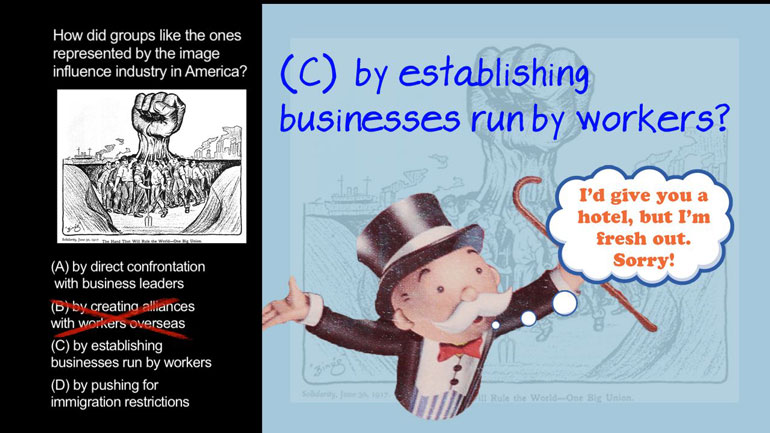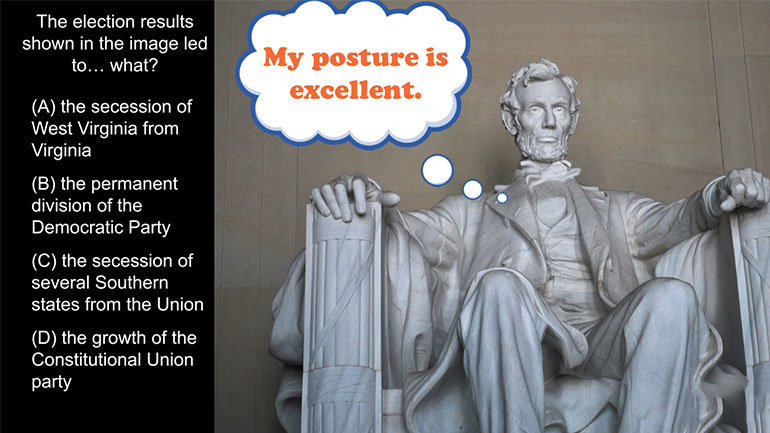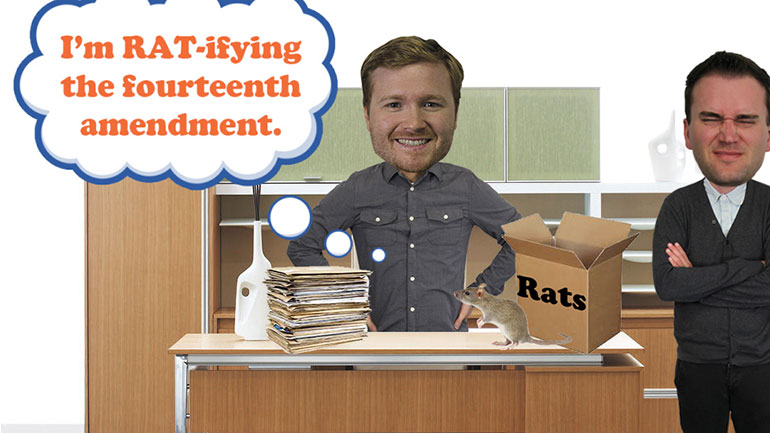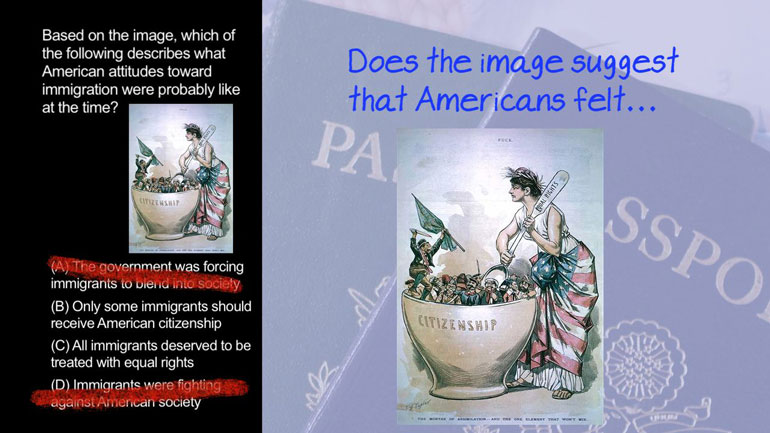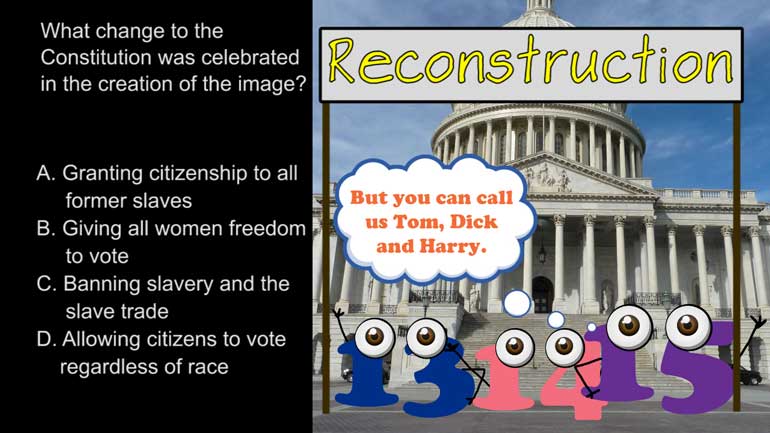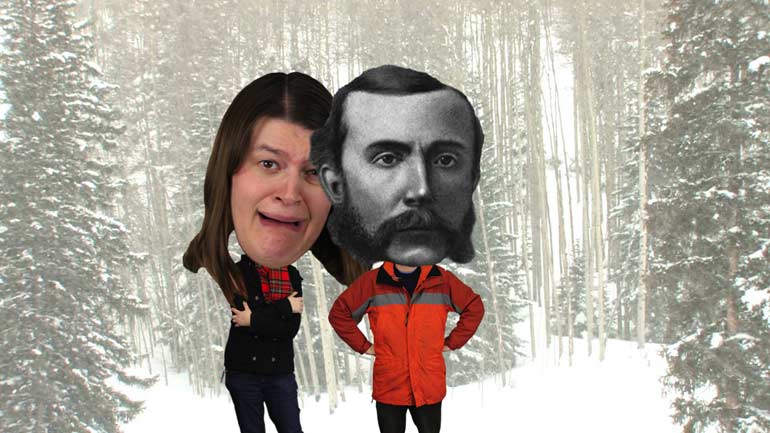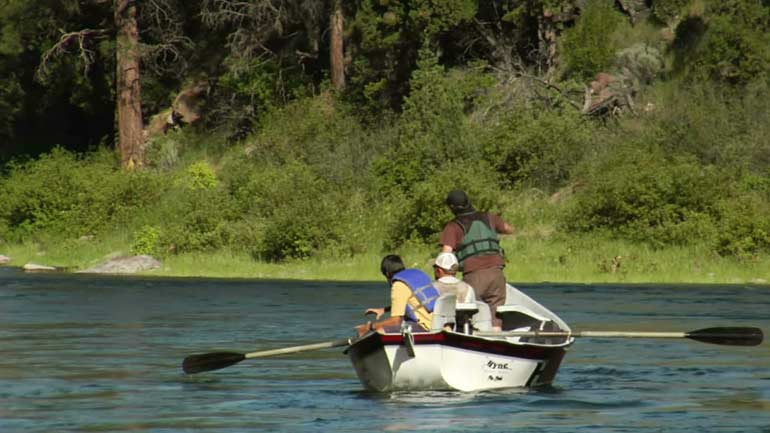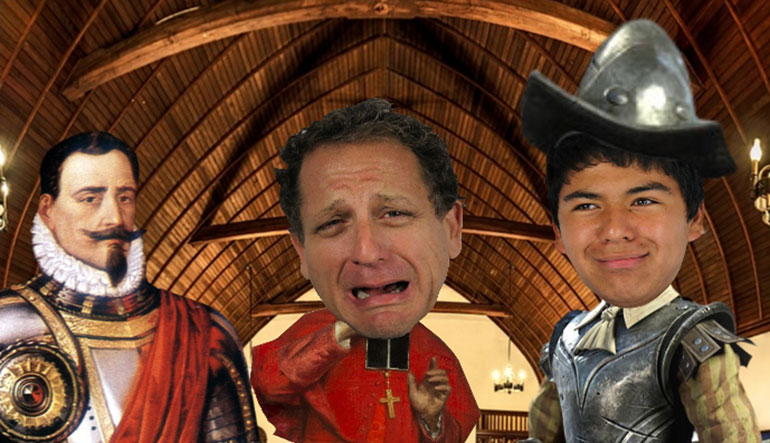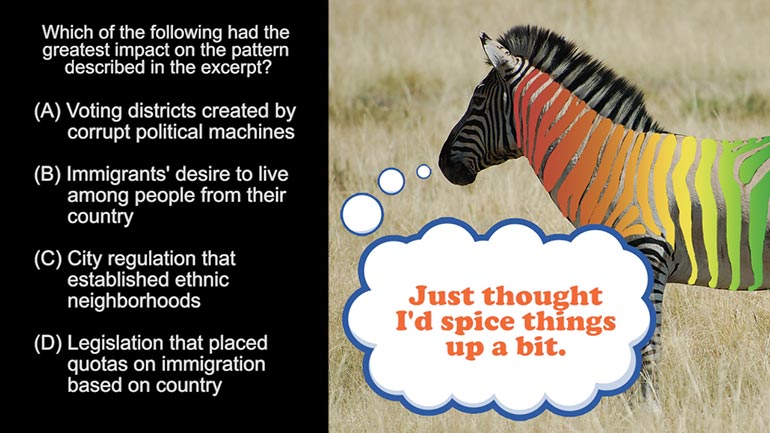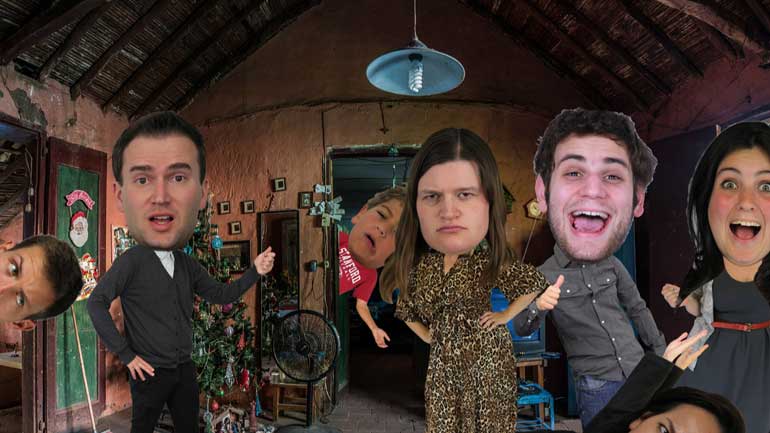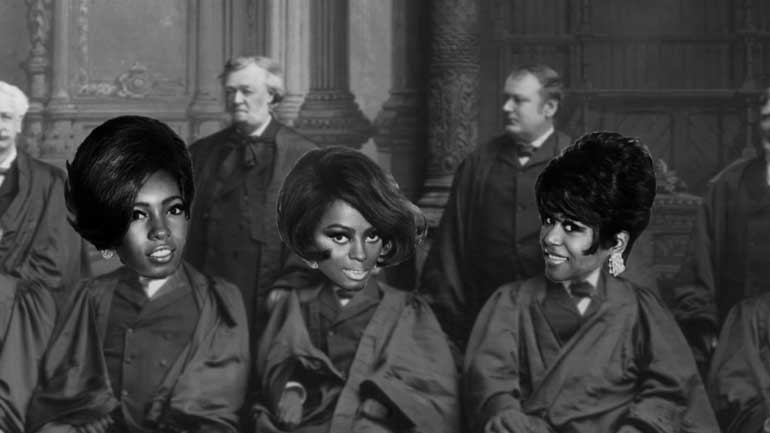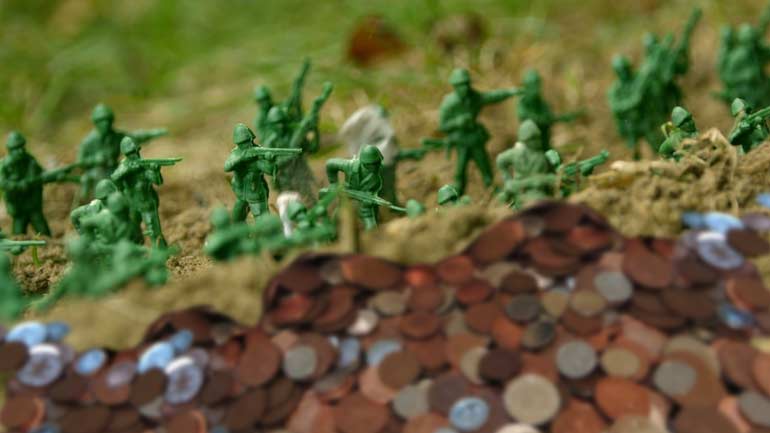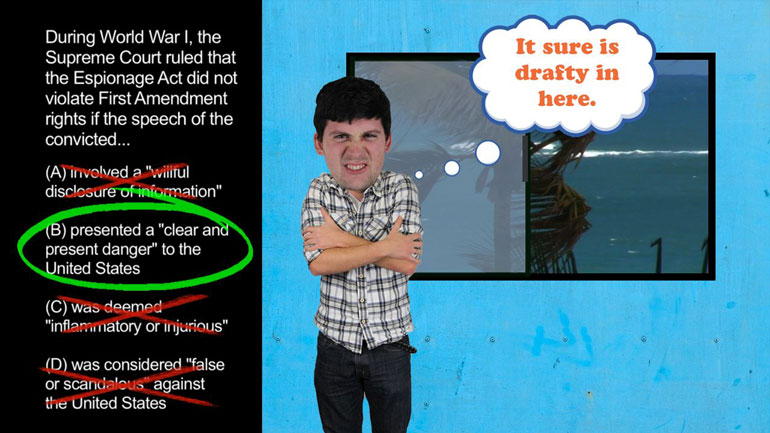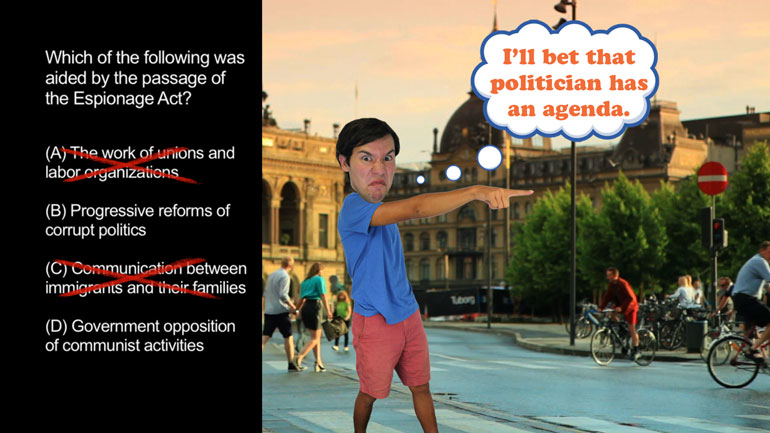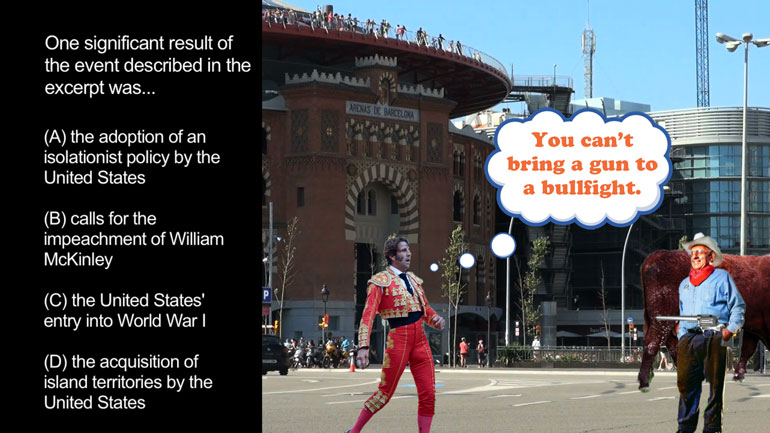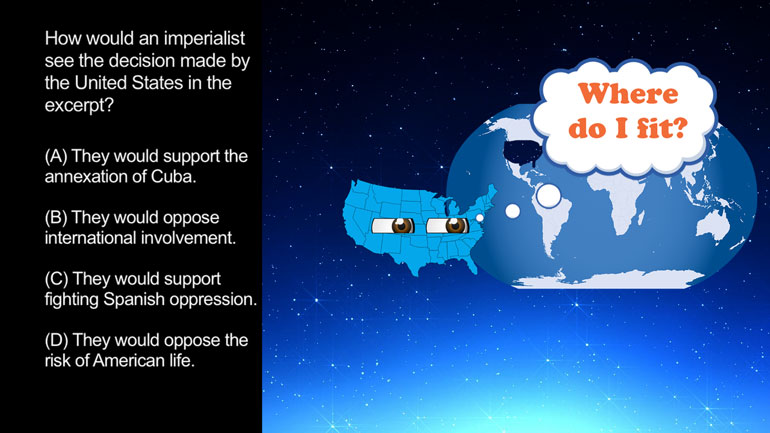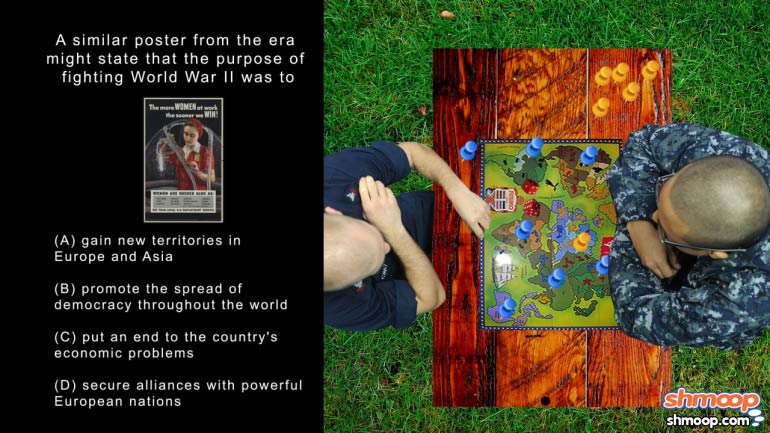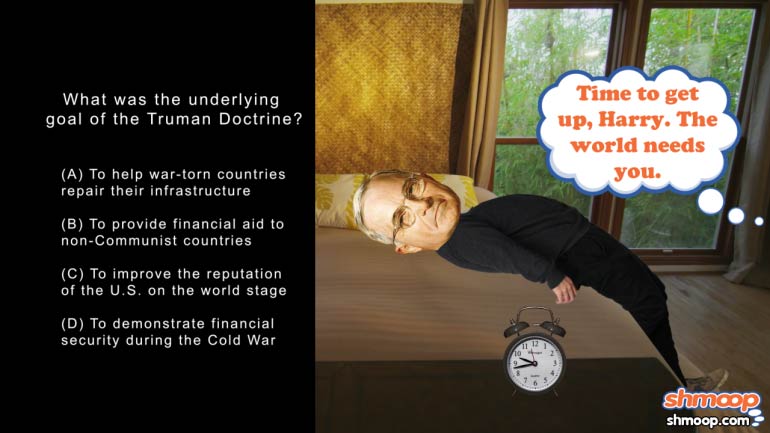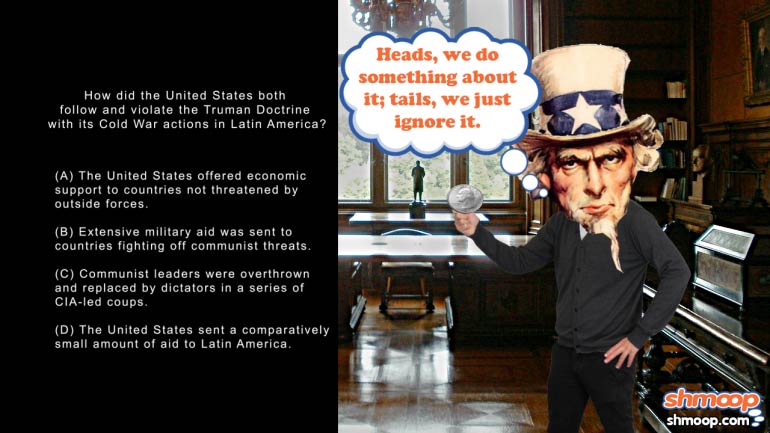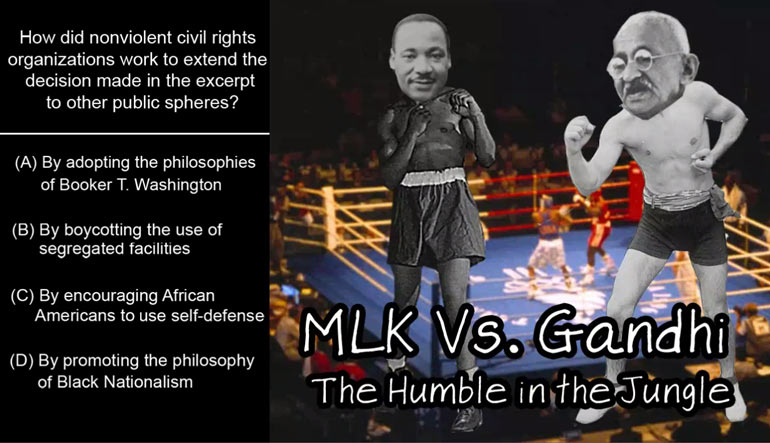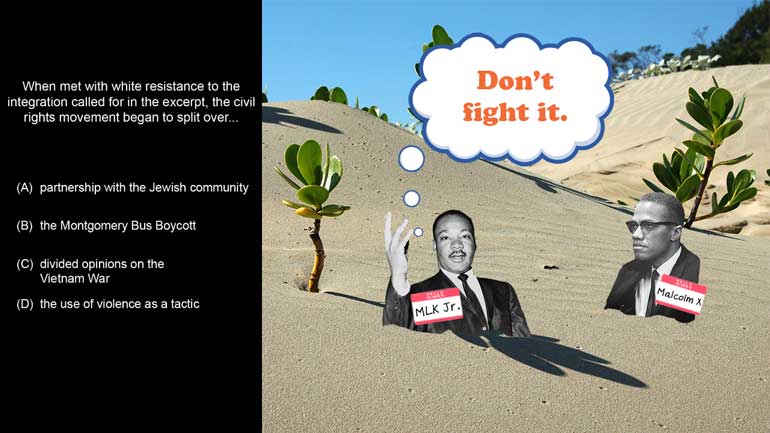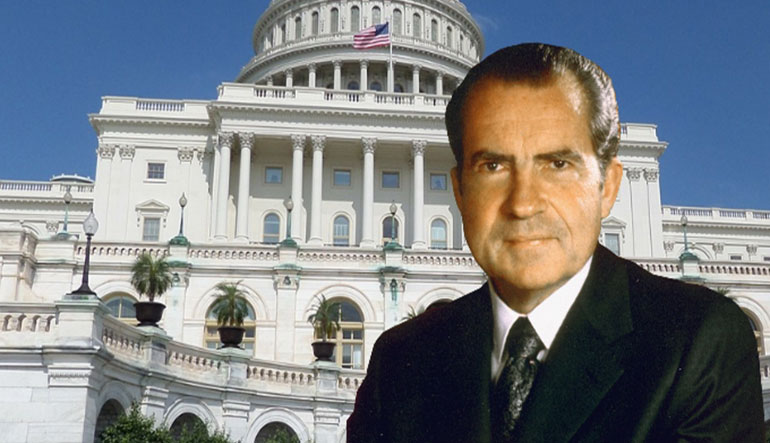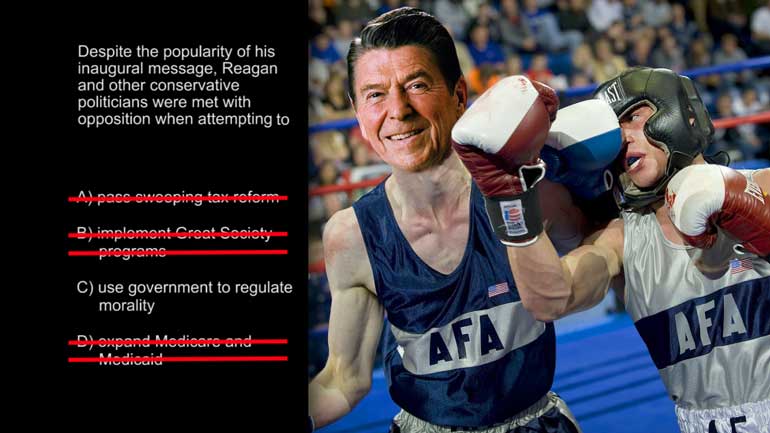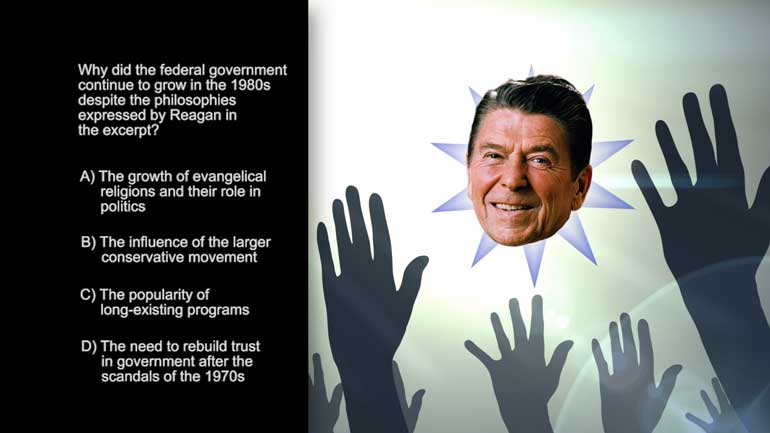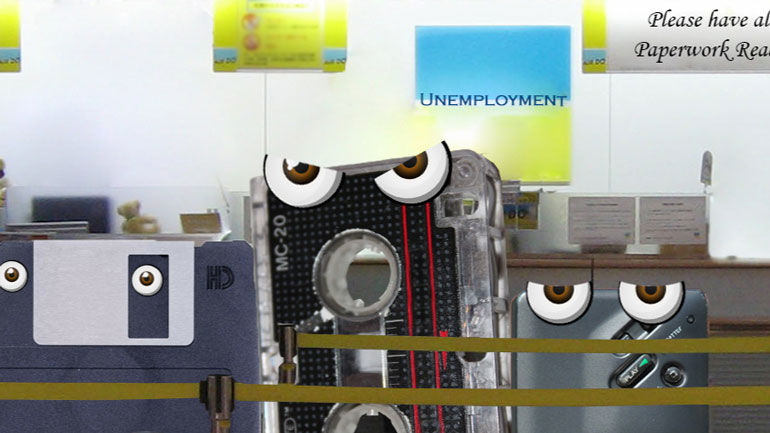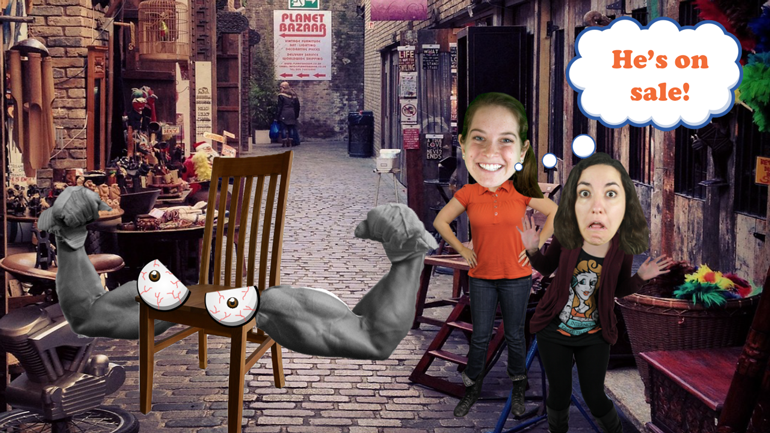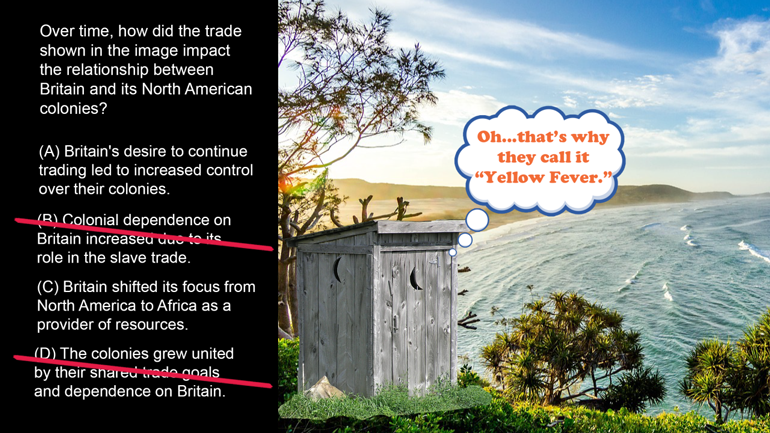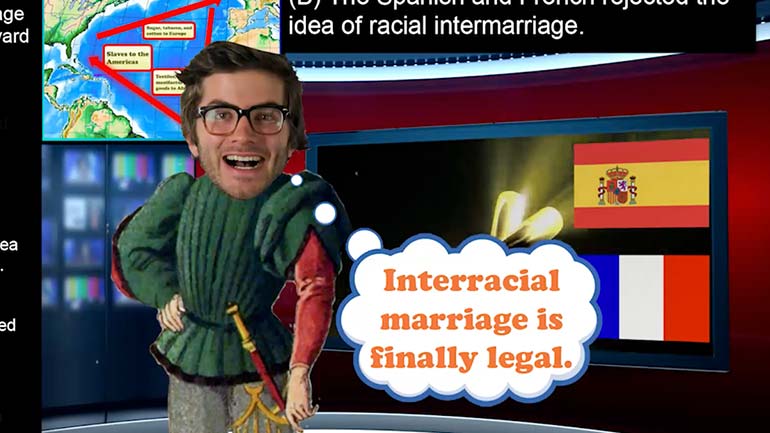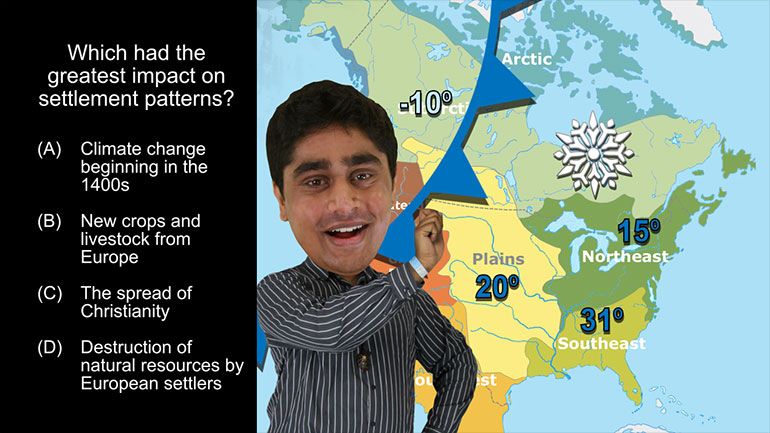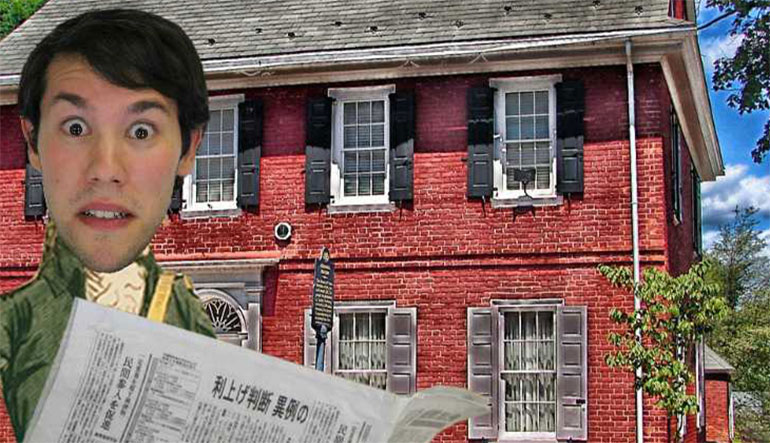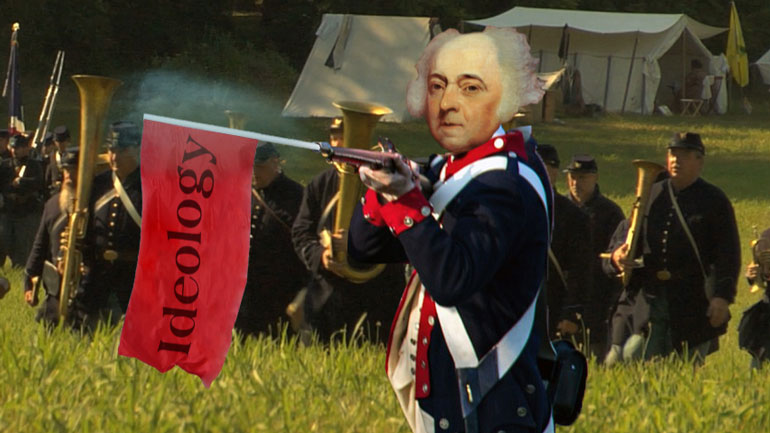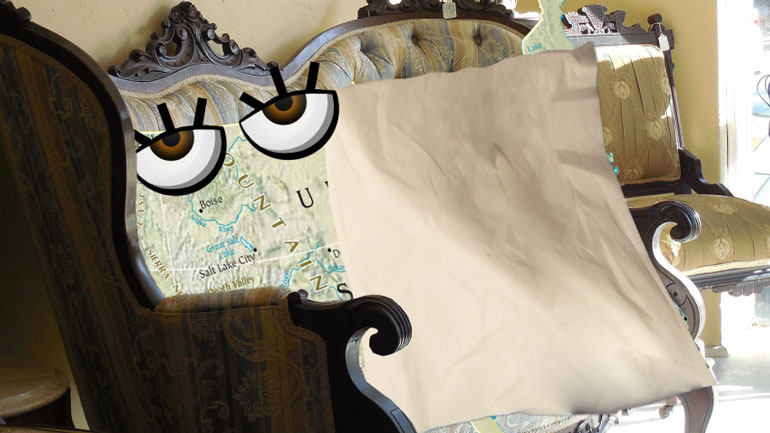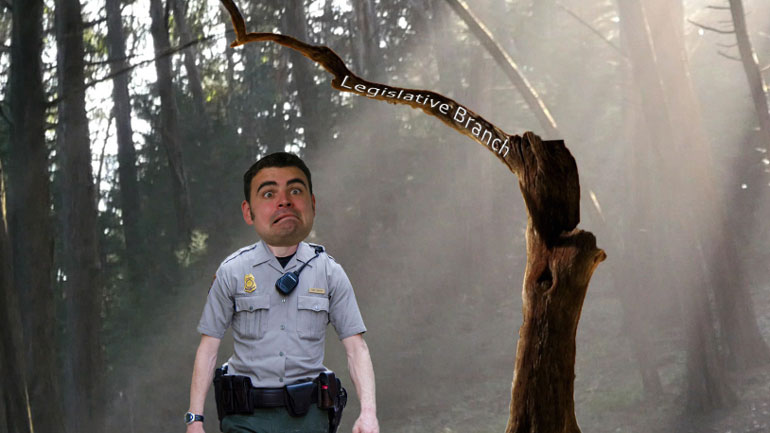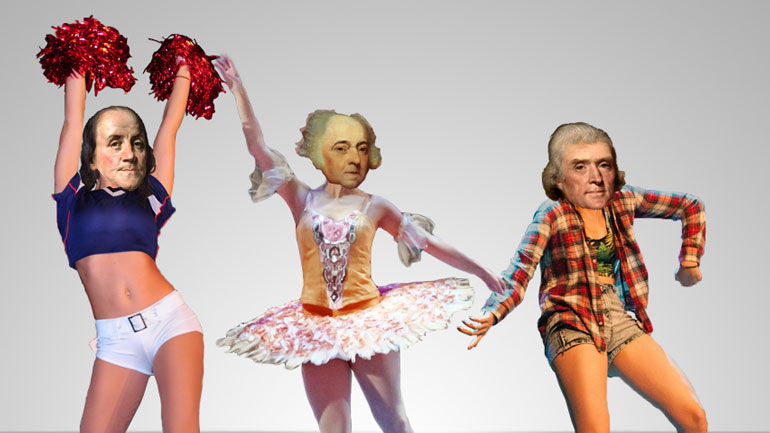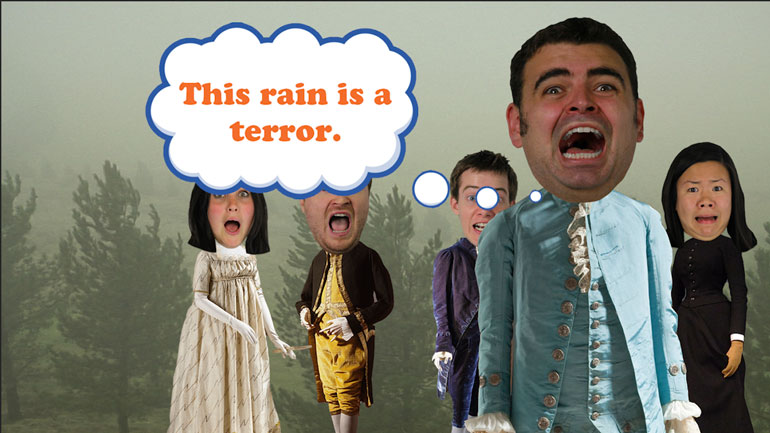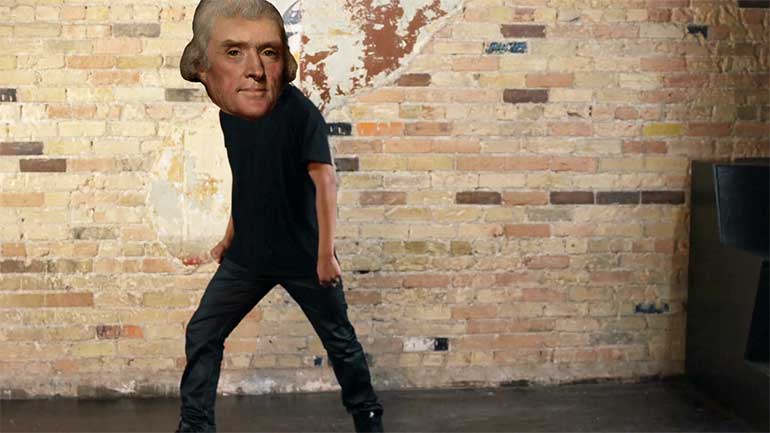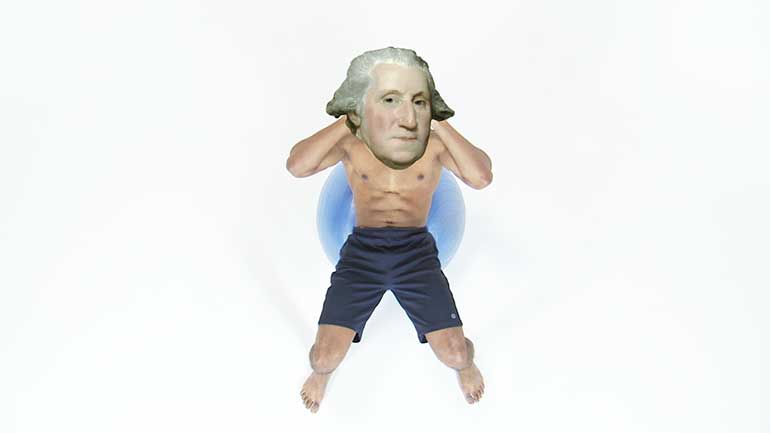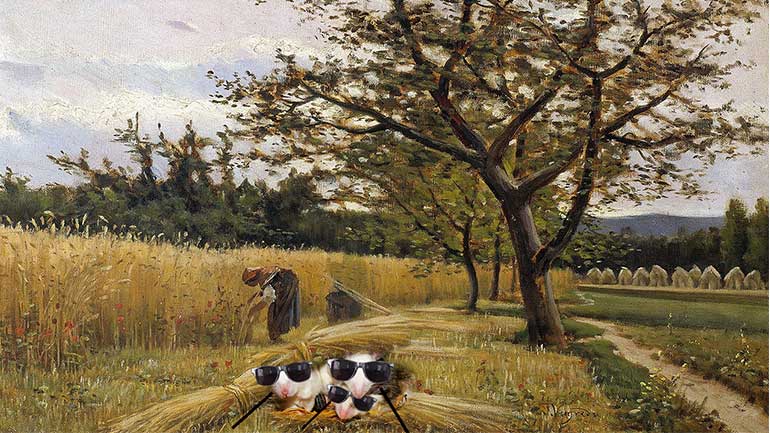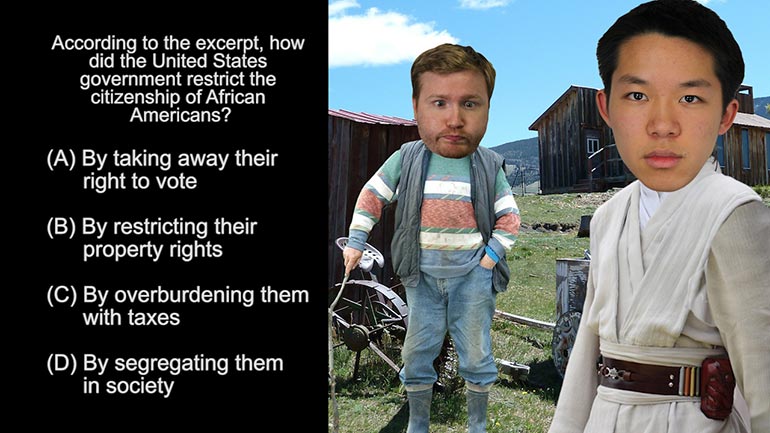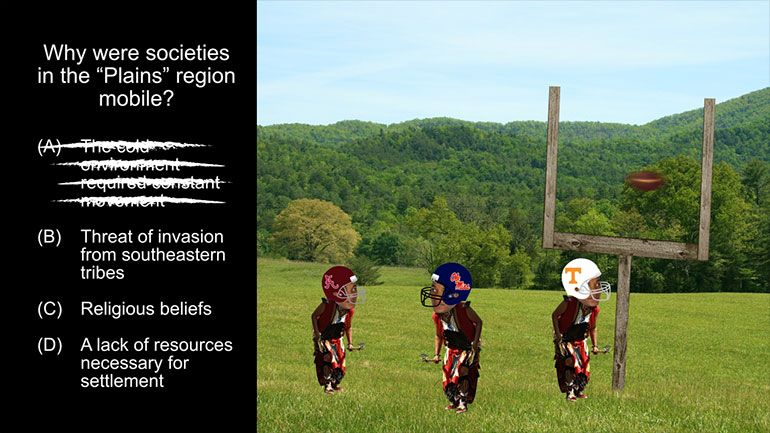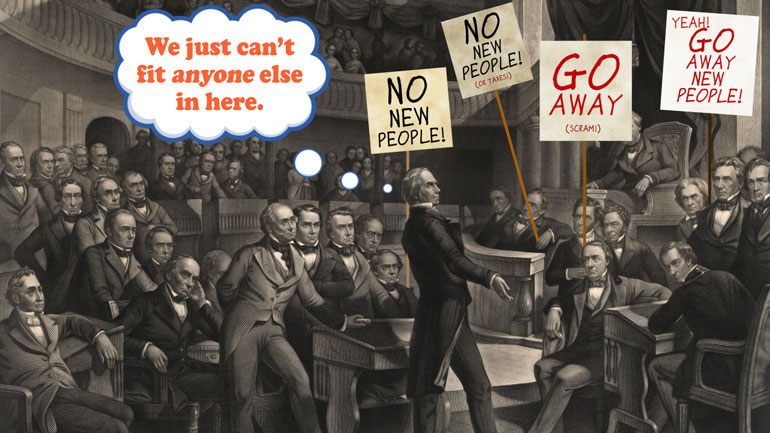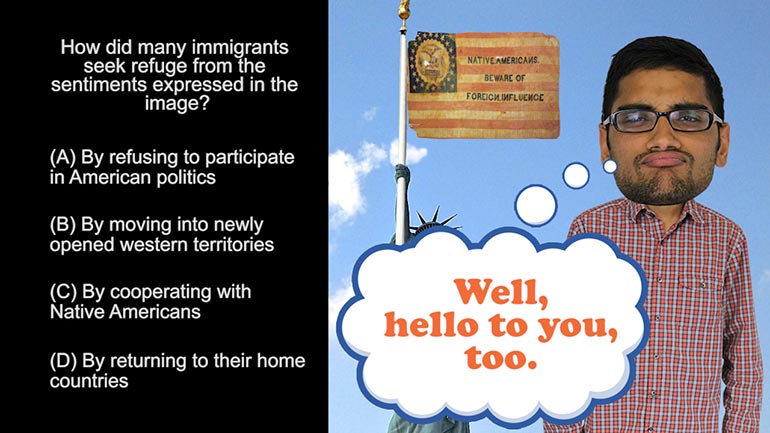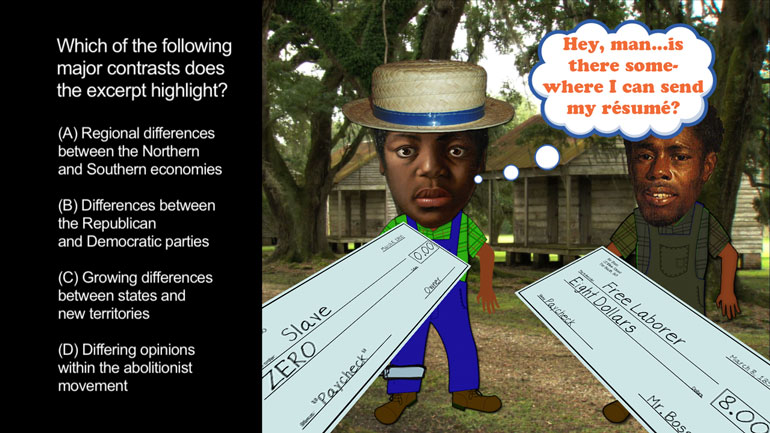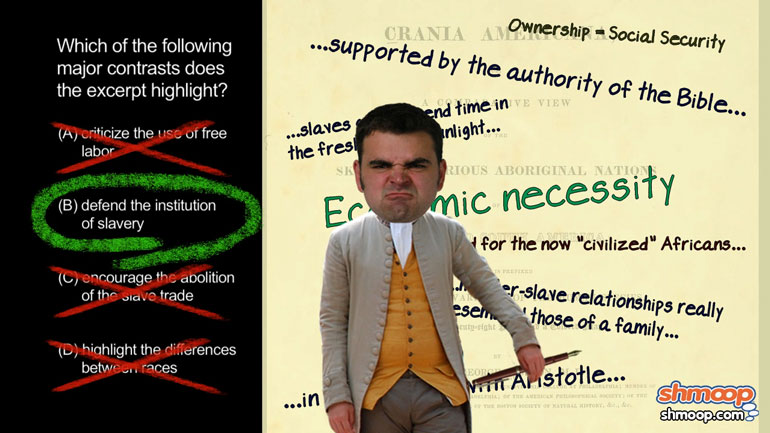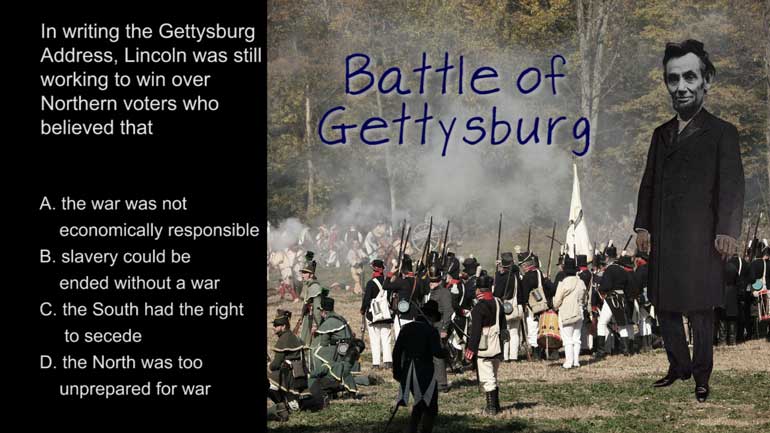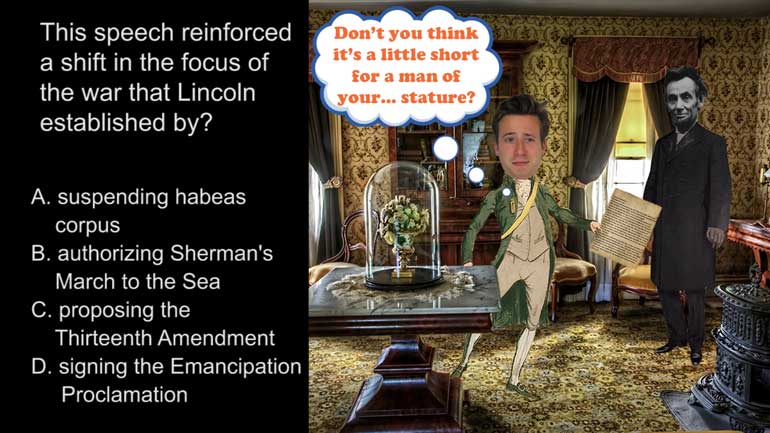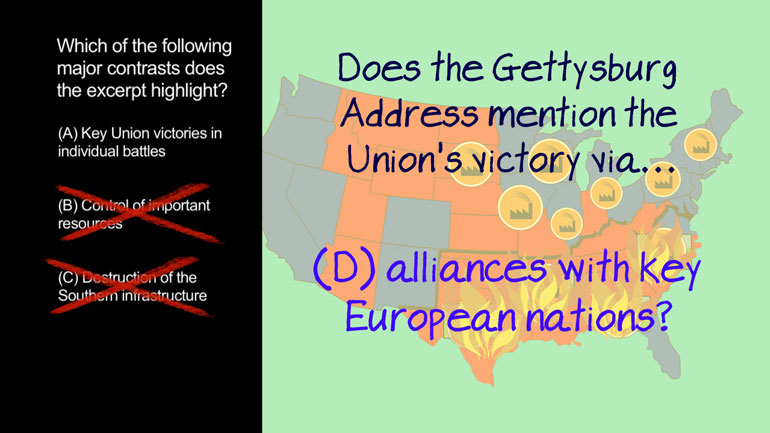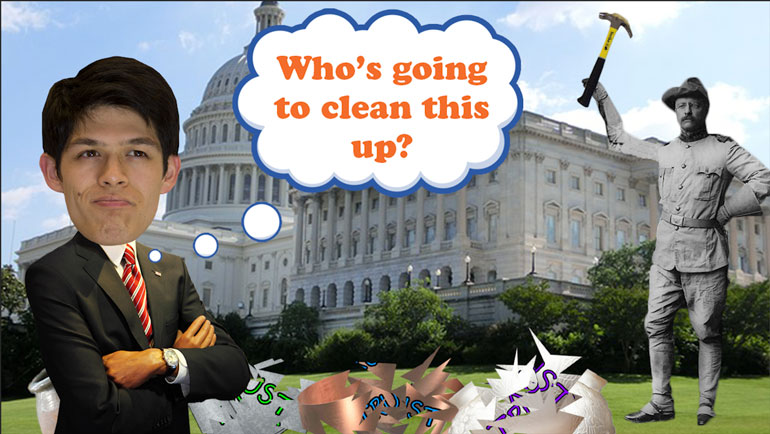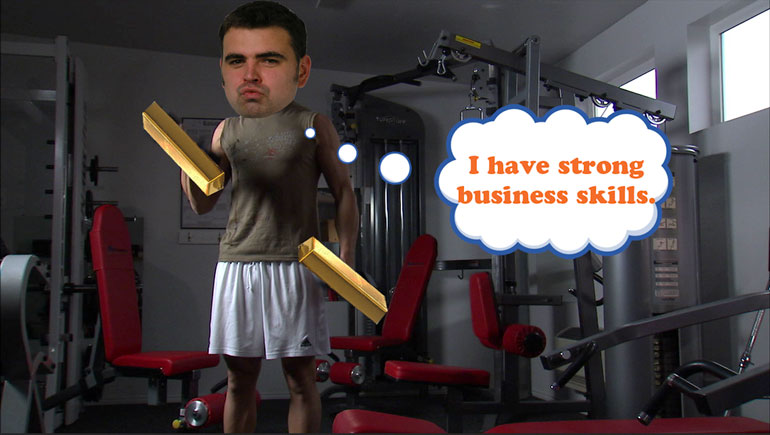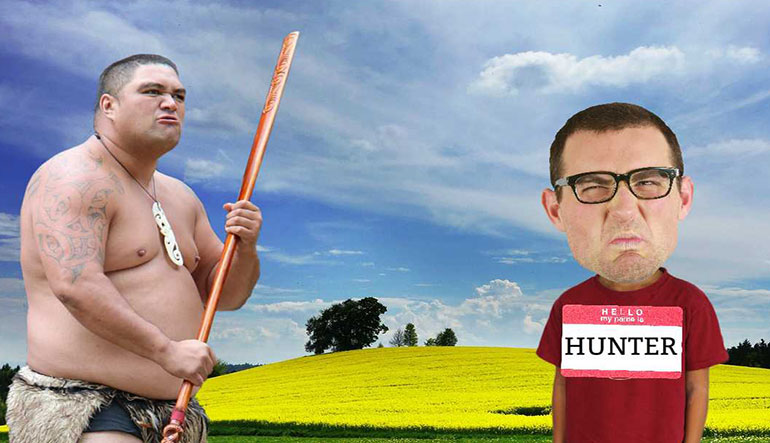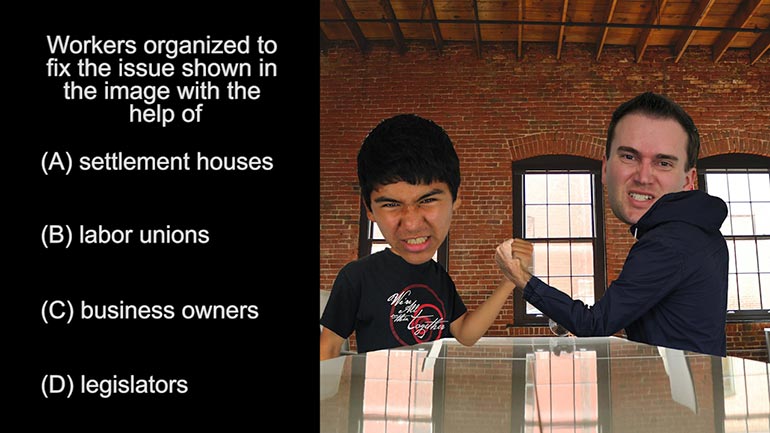ShmoopTube
Where Monty Python meets your 10th grade teacher.
Search Thousands of Shmoop Videos
AP U.S. History Videos 277 videos
AP U.S. History Diagnostic 1. Relationships like the one shown in the image resulted in the development of...what?
AP U.S. History Diagnostic 15. How did groups like the ones represented by the image influence industry in America?
AP U.S. History Diagnostic 10. What led to the splintering of the political parties shown in the image?
AP U.S. History Exam 1.23 166 Views
Share It!
Description:
AP U.S. History Exam 1.23. Which piece of legislation was the image created in response to?
Transcript
- 00:00
[ musical flourish ]
- 00:03
And here's your Shmoop du jour, brought to you by Free Soilers,
- 00:07
the cheapest gardening material on the market.
- 00:09
All right, which piece of legislation was the image created in response to?
- 00:12
This image right here. Big mouth.
Full Transcript
- 00:14
And here are your potential answers.
- 00:16
[ mumbles ]
- 00:20
All right, well, let's take a closer look at this hair-raising image.
- 00:24
Those men - the ones standing on the Democratic platform -
- 00:27
they're forcing slavery down the throat of a Free Soiler,
- 00:31
someone opposed to the expansion of slavery in the Western territories.
- 00:35
Could this image have been created as a response to the
- 00:38
passage of the A - Compromise of 1850?
- 00:41
Hmm. Well, the Compromise of 1850 allowed
- 00:44
California to be admitted as a free state,
- 00:46
as well as delaying decisions about slavery in
- 00:48
the New Mexico and Utah territories.
- 00:51
And while we're on the subject of compromises,
- 00:53
the Missouri Compromise closed
- 00:55
Kansas to slavery altogether.
- 00:57
So Free Soilers would have rooted for
- 01:00
both of these legislative acts. So cross out A and C.
- 01:03
Was this image published as a reaction to the
- 01:06
D - Fugitive Slave Act?
- 01:08
Well, the Fugitive Slave Act required
- 01:10
that escaped slaves in the North
- 01:12
be returned to their owners in the South,
- 01:14
forcing those against slavery to take
- 01:17
part in its continuation.
- 01:19
However, Free Soilers were specifically
- 01:22
opposed to the expansion of slavery, not necessarily its
- 01:25
eradication in places it already existed.
- 01:28
So that knocks out D, as well.
- 01:29
Which means that this cartoon was a reaction to the
- 01:31
passage of the B - Kansas-Nebraska Act.
- 01:35
The Kansas-Nebraska Act changed the game by
- 01:37
overturning the Missouri Compromise,
- 01:40
which allowed citizens in Kansas and Nebraska
- 01:42
to decide on the slavery issue through
- 01:44
popular sovereignty. In the eyes of the Free Soilers, this was like
- 01:47
having slavery shoved down their very large throats.
- 01:51
So B is the right answer.
- 01:53
Though there were plenty of people out there in favor of
- 01:55
the Kansas-Nebraska Act, the Free Soilers thought this
- 01:57
whole popular sovereignty thing was, uh, well,
- 02:00
pretty unpopular.
Related Videos
Ever heard of a "living document"? They eat and breathe just like the rest of us! They even walk around on their own two legs. Okay, fine—maybe t...
If the Puritans had gotten their way, religion would play a much larger role in lawmaking these days. Want to know more? Watch the video for all th...
What happened between the creation of the Articles of Confederation and the ratification of the current U.S. Constitution? This video analyzes the...
The Modernists thought the world had a lot of problems, and they were intent on fixing them—or at least talking about fixing them. Unfortunately,...
This video explains Federalism and the quest for a fair balance between state and national power. It covers the progression and compromises of Fede...

